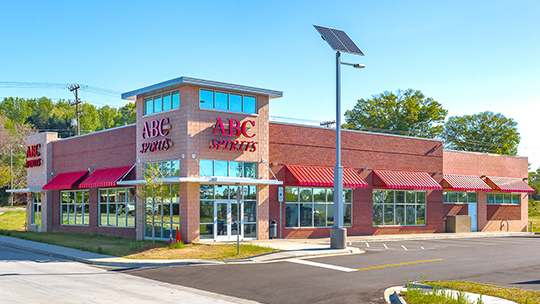
North Carolina beverage alcohol retailers are seeing a push to modernize and privatize the state’s old-fashioned liquor store monopoly. North Carolina Rep. Chuck McGrady recently introduced HB971, which would enact major changes for liquor sales, including retail privatization. “There’s a lot of interest in the bill, but it also has opponents,” says McGrady, who co-chairs the state House Alcohol Beverage Control (ABC) Committee.
The bill’s other primary sponsors are state representatives John Hardister, Jason Saine, and Pricey Harrison. “We’re finalizing the details of the bill over the next couple weeks,” McGrady says. “I expect it to come before the committee for discussion in June.”
North Carolina is the only U.S. state in which local government boards maintain control over retail spirits sales. Most states have a single liquor control authority entity; the Tar Heel State, on the other hand, has 170 different ABC boards. They range in size from two to six members appointed by local city councils and county boards, which many say has led to a patronage system full of incompetence and mismanagement that costs the state millions of dollars. McGrady’s legislation comes on the heels of last August’s report from North Carolina State Auditor Beth Wood that criticized the state ABC for poor contract administration—which ultimately cost the state at least $11.3 million over 13 years—and for its unused warehouse space, costing at least $2.1 million over seven years.
While there are 17 control states, North Carolina is one of eight controlling both the wholesale and retail sales of spirits, which means the North Carolina ABC runs all 432 liquor stores in the state. McGrady notes that if North Carolina allowed private liquor retail outlets and authorized 1,000 permits, liquor sales would increase 20% according to the Program Evaluation Division, the legislature’s nonpartisan research arm.

Opponents of privatization argue that the change could cause retail prices of spirits to rise, but McGrady deflects this argument. “Our model taxes liquor by the volume, not by price,” he says. “The reason detractors make that claim is because of the experience in Washington State. HB971 is not modeled after what Washington did. The idea is not to give up the government monopoly to sell and distribute distilled spirits only to replace it with another monopoly.”
North Carolina, the No.-4 control state by spirits sales, posted the highest volume growth rate among control states in 2018 at 5.2% to 5.98 million 9-liter cases. While the spirits market in North Carolina is barreling ahead, McGrady believes adopting a licensure model—similar to the way the state sells beer and wine—would help the state see even bigger results.
The legislature’s ABC Committee recently advanced another McGrady-sponsored bill (HB91) that would allow Sunday spirits sales and spirits tastings in ABC stores. “This will be a local option issue,” McGrady says. “I’m confident North Carolina will approve Sunday liquor sales and spirit tastings at its ABC stores this year.”
McGrady’s push is expected to shake up the state’s alcohol industry retail tier one way or another. “North Carolina will continue to modernize its outdated alcohol laws,” McGrady says. “The effort to get state and local governments out of the business of selling and distributing liquor could take some time, but I believe it will happen.”